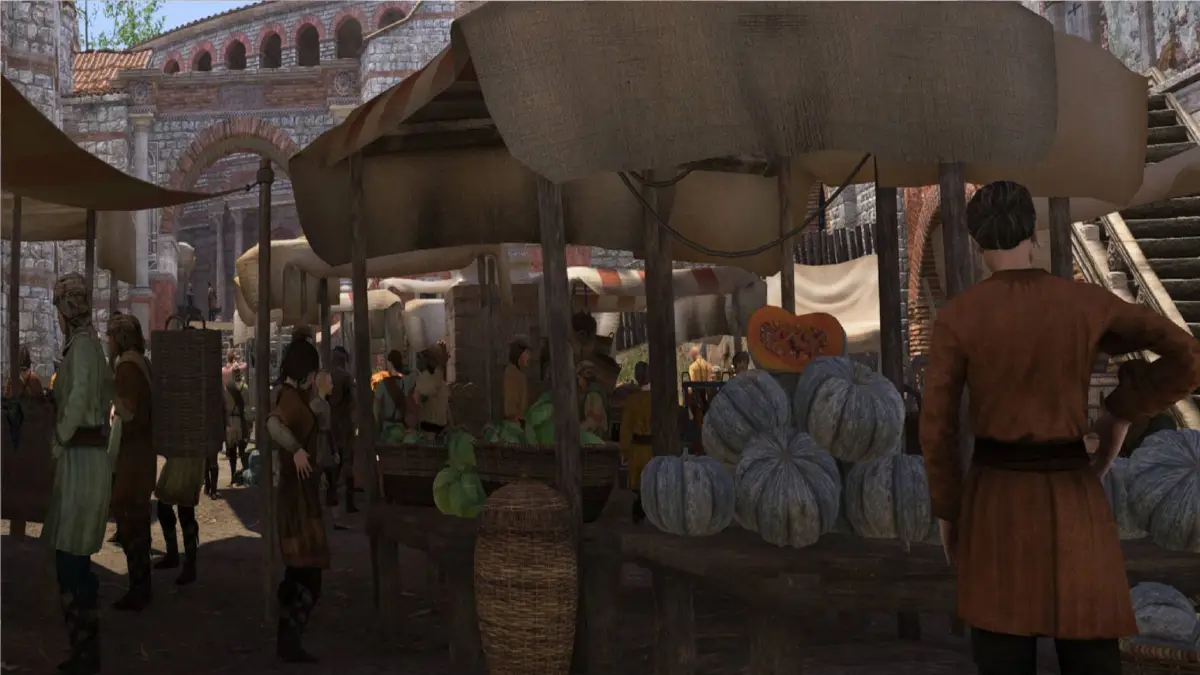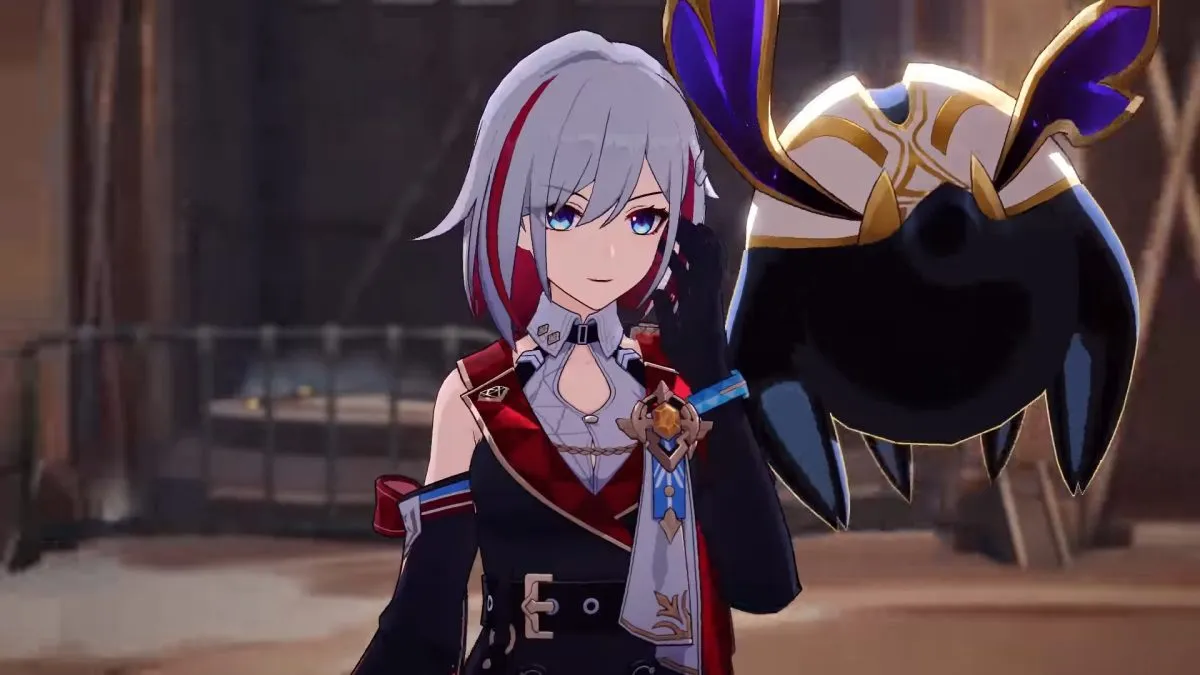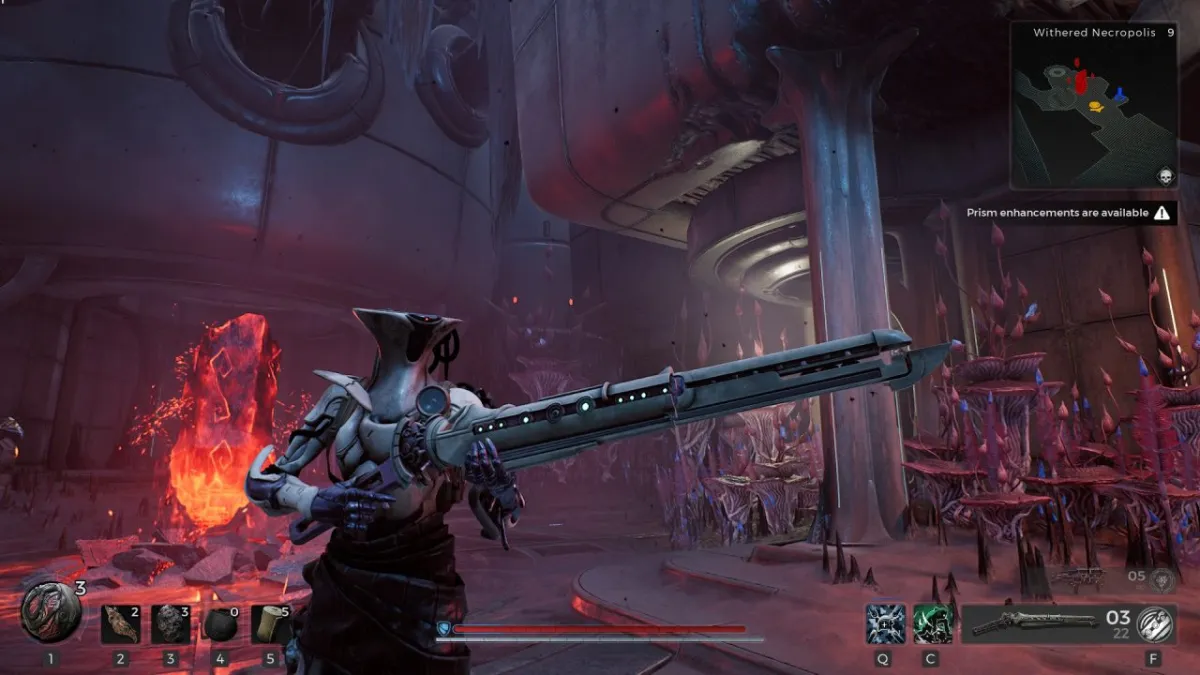Mount & Blade II: Bannerlord lets you play around with the economy, barter with rival lords, and increase your Trade skill in due course. Here’s our mini-guide to help you out.
Note: This guide is intended for Mount & Blade II: Bannerlord‘s early access stage. For more information, check out our Mount & Blade II: Bannerlord guides and features hub.
Mount & Blade II: Bannerlord’s economy – Resources and trade goods
As mentioned in our early-game gold-making guide, you’ll earn a lot of denars as the campaign opens up even without focusing on trade. Still, if you do wish to live the life of a merchant in Calradia, you can do so. Oh, and don’t forget to increase your inventory capacity if you’re planning on focusing on being a merchant for a while.
Let’s say you’ve visited a settlement and you’ve got the trade window open, here are a few basics when looking at an item’s price:
- Red means expensive – Avoid buying it in that settlement, but do sell it if it’s in your inventory.
- Green means cheap – Do buy lots of it, but avoid selling what you have in your inventory.
- White means average – This is the market value (or average price) of the item.
- If you mouse over various food items or trade goods — ie. flax, linen, hardwood, wool, grain, olives, and the like — you’ll see various towns that are listed. The tooltip tells you where they can be sold for a profit.
- Prices fluctuate over time, so it’s possible that you won’t earn as much once you reach the next town.
As you can see in the example above, animal hides in Phycaon are in green (cheap) and are priced at 47 gold each — which means we should buy these here. At the same time, they’re worth double that value in Saneopa and Zeonica.
If we travel to Zeonica, we’ll see that animal hides are in red (expensive), so we’ll sell what we bought in the previous town to earn a profit:
The Trade skill, bartering, and exchanging settlements
The goal, other than amassing gold in Mount & Blade II: Bannerlord, is to increase your Trade skill. It’s even got perks that can boost your caravans and workshops.
Anyway, the Trade skill is increased via operating caravans (XP gains don’t seem to work at the moment), successfully bartering with nobles (telling them that you have a proposal that might be beneficial and succeeding with the trade), and the buy low/sell high routine explained above (which can be a little tricky as detailed below).
Here are some things to take note of when buying low and selling high to level up your Trade skill:
- You need to sell goods that you bought in a settlement for a profit. This means selling post-battle loot won’t count.
- You also cannot reload a save or “save scum” as you’ll no longer gain XP even from profitable sales. You’ll likely need to restart the game and avoid reloading throughout your trading run.
- Lastly, your XP gains are based on your profit margin. The more gold you earn per transaction, the higher your skill XP gains. Try to only sell goods and click “done” before you buy anything.
Everybody’s got a price for the Million Dollar Man
Let’s say you finally managed to hit level 225 Trade skill, you’ll be able to pick the “Everything Has A Price” perk. This lets you trade settlements while bartering with nobles. It’ll also make you laugh like “The Million Dollar Man” Ted Dibiase because it’s currently broken. As you can see below, AI lords will give you everything they have for almost nothing in return.
This is also another way to hand out fiefs to vassals outside of repeatedly trying to propose a vote. Just assign them to your army and talk to them to barter so you can give or take settlements.
Mount & Blade II: Bannerlord is available now via Steam’s early access program. For more information, check out our guides and features hub.










Published: Apr 7, 2020 07:09 pm